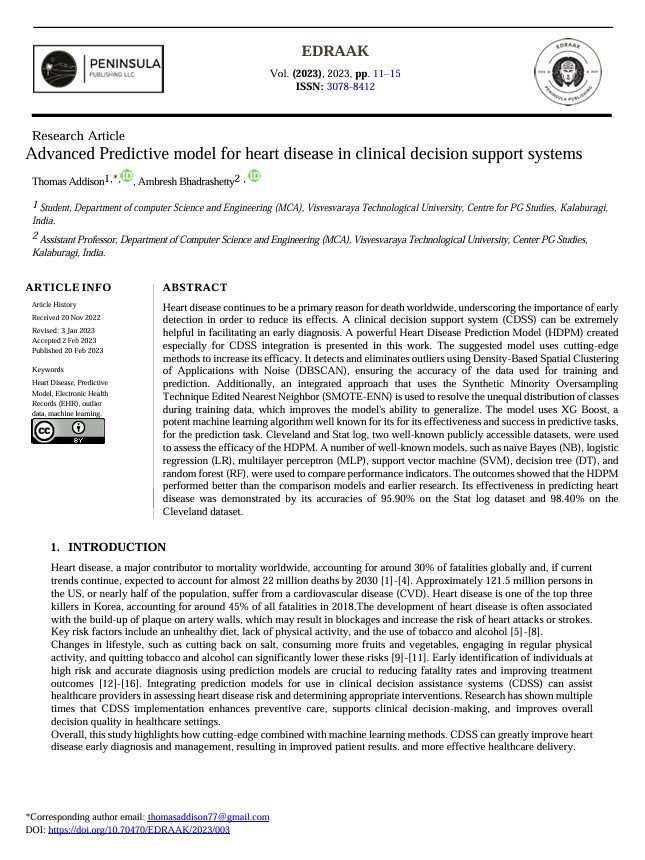Advanced Predictive model for heart disease in clinical decision support systems
Main Article Content
Abstract
Heart disease continues to be a primary reason for death worldwide, underscoring the importance of early detection in order to reduce its effects. A clinical decision support system (CDSS) can be extremely helpful in facilitating an early diagnosis. A powerful Heart Disease Prediction Model (HDPM) created especially for CDSS integration is presented in this work. The suggested model uses cutting-edge methods to increase its efficacy. It detects and eliminates outliers using Density-Based Spatial Clustering of Applications with Noise (DBSCAN), ensuring the accuracy of the data used for training and prediction. Additionally, an integrated approach that uses the Synthetic Minority Oversampling Technique Edited Nearest Neighbor (SMOTE-ENN) is used to resolve the unequal distribution of classes during training data, which improves the model's ability to generalize. The model uses XG Boost, a potent machine learning algorithm well known for its for its effectiveness and success in predictive tasks, for the prediction task. Cleveland and Stat log, two well-known publicly accessible datasets, were used to assess the efficacy of the HDPM. A number of well-known models, such as naïve Bayes (NB), logistic regression (LR), multilayer perceptron (MLP), support vector machine (SVM), decision tree (DT), and random forest (RF), were used to compare performance indicators. The outcomes showed that the HDPM performed better than the comparison models and earlier research. Its effectiveness in predicting heart disease was demonstrated by its accuracies of 95.90% on the Stat log dataset and 98.40% on the Cleveland dataset.
Article Details

This work is licensed under a Creative Commons Attribution 4.0 International License.
